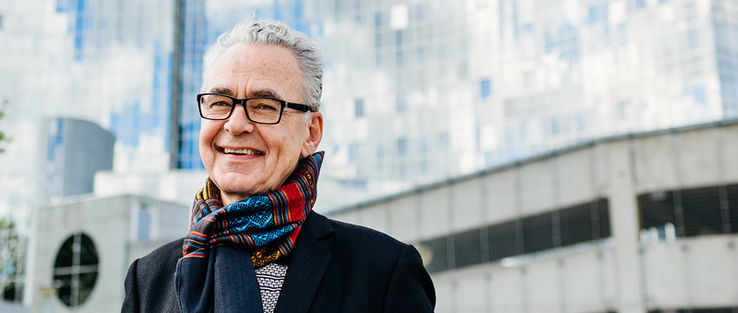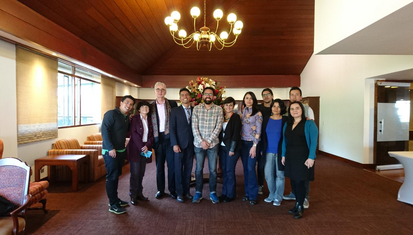Riemer Knoop gives a seminar on Thursday 23rd, Friday 24th and Saturday 25th of November on Cultural Heritage & Sustainability in Bogota. This seminar is given in the context of the conclusion of the first, experimental semester of a new master’s programme museology at the private Universidad Externado in Bogota, Colombia. Former Master student William Gamboa is course director.
The topics Knoop deals with in three lectures, with free access for the university community, derive directly from the current lectureships programme: Street Values, Participatory museums and The Art of Forgotting.
Street Values
An enquiry into the way social values are becoming reflected in heritage sites and locations. This research project, in the form of a ‘Living Lab’ looks at modern, societal practices where new qualities of the living environment are being negotiated. The starting point is not how we’re dealing with classified monuments and/or prot4ected archaeological sites, but how communities nowadays are forming their own agendas with regard to the future of their physical environments. Some of the desired qualities may well contain heritage values. This summer, the preliminary study Straatwaarden: in het nieuwe landschap van maatschappelijke erfgoedpraktijken (partly Dutch, partly English) saw the light of day. The lecture will go into the details of the project, and present the underlying non-modernist philosophy of susitainism, a socially sustainable lens for appraising culture and society in the 21st-century.
Participatory Museums – in the Netherlands, EU and China
Ever since Nina Simon’s groundbreaking study The Participatory Museum (2010) was presented, museum professionals have been looking for ways to bring the principles in practice in a sustainable and meaningful way. This lecture will present a background to Simon’s thinking and connect it with present practices both in the Netherlands and the EU. In the background stand notions about the tension between universal and localised museums, which recently played a major role in the formulation the latest UNESCO recommending on museums and collections. In this lecture I will also go into the teaching experience of participatory museum practices our academy had at Zhejiang University in Hangzhou (China), in 2015-2016.
The Art of Forgetting
The Art of Forgetting:a study about the way institutional forgetting forms the counterpart of remembering and conserving. Combing psychoanalytical insights (Sacks) with recent developments in memory studies (Paul Connerton), but also with Foucauldian notions of (cultural) knowledge and power, I try to come to a new understanding of the paradoxes in western museum policies. There are often too many institutions with too large collections that can hardly be shown anymore. The answer may perhaps be found in the unwillingness or inability to admit that forgetting is part of the human condition – and for a reason.

